Dedicated to the memory of Thomas B. Gay, educator, painter, poet, friend.
(read more about Thomas B. Gay)
Each spring we use this reading loop to bring to your attention writers and artists whose work you may be encountering for the first time. In this issue, the group includes several who have already made their way to other lists, anthologies, and small presses acclaiming their remarkable work. We expect that you will be glad to discover them now—and to hear of them again later in their careers, as you no doubt will.
| Ciera Burch | ||
| In her short story “Neutral Bodies,” Ciera Burch sheds light on systemic issues surrounding police brutality, the failures of mental health care, and the fatalistic reality facing black youth in America. Burch’s narrator, an upper middle-class female therapist, shares the same traits as her younger clients: “born with brown skin and curly hair and guilt.” Dissociated from her practice, marriage, and maternal desires, the narrator remains certain of one thing: “if depression were the black body, it might be fascinated by how little room there is for it in the world.” | 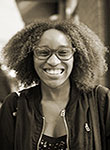 |
|
| Holli Carrell | ||
| Holli Carrell’s “Two Women” reveals the duality of the feminine figure as ornament. Sparse but lyrical language heightens the inherent strangeness of the speaker’s observations; these engendered forms morph between sound and silence with precise imagery as “black moths / flutter out” from beneath their skirts. Carrell engages with familiar and unfamiliar threads, introducing elemental properties that span the space between them—they are tethered by “the rust // of yesterday’s blood: / they have learned // to wear it like jewelry.” | 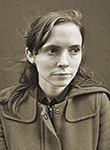 |
|
| Emily Chiles | ||
| Emily Chiles’s runaway tale “Kansas” revisits Dorothy on the prairie as she flees the farmhouse she once called home. She means to wake only her children with the promise of “sweets and a train ride” come dawn. Fearing “God’s will in that dry, gray earth,” Dorothy deserts her husband who remains as deadly as the midwestern drought. Chiles brings an imaginative balance to the domestic tension and dreamlike enchantment of the narrative as “Dorothy opens her eyes” in the safety of a train car where “the late afternoon sun spills through the window, clear and cold. A different light.” | 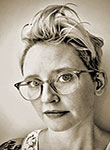 |
|
| Sarah Golin | ||
| In Sarah Golin’s “Letters to Genevieve,” a writer interrogates her past by means of a braided epistolary form. Addressing her former dance teacher, Genevieve Jones, Golin meditates on the ways women find home within the body and liberation through performance. Genevieve “wrote dance with a capital D—‘like God’—because it . . . was the unifying force in her life.” The essayist turns to Genevieve in an attempt to encourage her daughter’s autonomy: “how can I feed that flame . . . knowing I am not sure how to maintain it in myself?” | 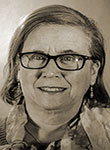 |
|
| Zach Hester | ||
| Zach Hester’s poetry renders a cynical view of a righteous America in which his reverent speaker believes “God gives / signs” through a sequence of biblical and commercial events witnessed in the state of Kentucky. It’s as if “birds // have learned to thrive / by flying in the eye . . . of such low, / low Black Friday // rollback prices / like these.” Hester performs such terror-filled miracles in these poems “like a train / run off-track—all tremble // and steam, tremble / and steam.” | 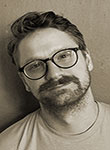 |
|
| Joey Kingsley | ||
| In Joey Kingsley’s crown of sonnets “Limits of the Burning World,” the presence and absence of divinity informs the nature of lived reality. Within each section of the poem the speaker pursues the October landscape to glean it “in tandem, turning red to wine, lime to yellow.” Kingsley’s work moves between the light and dark sides of human desire as our bodies become the maps which lead us through the fire and beyond forgiveness as “an act / of raking yourself into yourself without an end in sight.” | 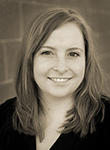 |
|
| Gwen E. Kirby | ||
| Gwen E. Kirby’s “The Best and Only Whore of Cwm Hyfryd” introduces the voice of a robust protagonist that rings with the pride of a well-traveled woman who preserves a space wholly her own. “I want to feel how much I can take,” she declares. In the foothills of the Andes, “Patagonia is a land with more sky than earth,” an earth that is rugged and unyielding. Kirby’s speaker finds a sense of place in such untamed territory: “I never forget that here I am rootless . . . I know exactly where I am.” | 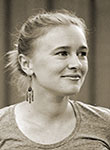 |
|
| Amy O’Reilly | ||
| In Amy O’Reilly’s poems, the world frequently refashions itself, postpartum. The speaker’s sensitivity to stimulus is the result: “when my husband // splashes bacon grease on the burner . . . I swear it’s / me, smoldering still, from the inside out.” In this world, time’s passage becomes marked by the age of the infant. Here, everything contains potential multitudes, but O’Reilly winnows with precision down to an artifact as impossibly small as her son’s first tooth as it “crushes upward through ligament and bone / to reach his small cut of our world.” | 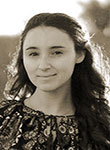 |
Introductions texts appear in different sections of Blackbird but are organized in this alternative menu, a featured reading loop allowing easy navigation of related material.
A link to this “Introductions Reading Loop” menu appears at the bottom of every Introductions-related
page. You may also return to this menu at any time by visiting Features.